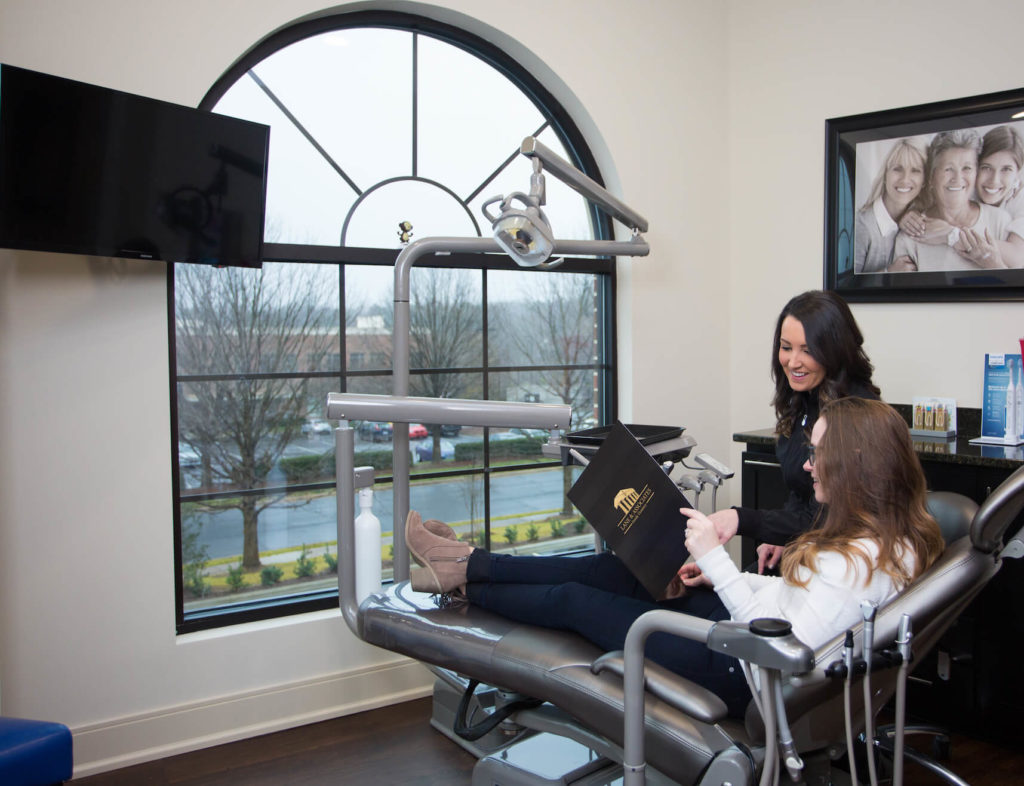Should I Cut My Tongue Tie?

If your first question is “What is a tongue tie?” we have the answer for you! But if the procedure is something you’ve been thinking about, we’ll break down the pros and cons for you here. If you’d like to speak with a dental professional or schedule a consultation, call us at 1-877-LANE-DDS or request a dental appointment online.
What is a Tongue Tie?
Also known as the frenulum, a tongue tie is the piece of tissue that connects your tongue to the bottom of your mouth. Cases that require correction are usually caught in newborns, but some adults can elect to have their frenulum cut if it wasn’t as a baby.
Why Should I Cut My Tongue Tie?
In babies, the frenulum can be cut to improve breastfeeding. In adults, patients with a thicker frenulum may experience speech impediments, snoring, sleep apnea, headaches, and chronic neck, jaw, and/or shoulder pain. Yes, this small piece of tissue really can impact your day-to-day activity in a big way! If you experience several of these symptoms and think your tongue tie is to blame, set up a time to speak with your dentist to discuss whether or not cutting your tongue tie is right for you.
How Can I Tell if I Have a Tongue Tie?
Try these methods to determine if you have a severe tongue tie. (Do them in the privacy of your own home, or else you might catch some strange looks.) Of course, you should always receive confirmation from your Lane and Associates dentist.
- Move your finger from left to right under your tongue. Does it catch?
- Is there a visible piece of skin under your tongue?
- Can you reach the tip of your tongue to that spot behind your front teeth when your mouth is open all the way?
What is a Tongue Tie Procedure Like?
Called a frenectomy, the procedure is relatively quick. It can be done using a laser or electrocautery, both of which will use a local or topical anesthetic. Your dentist will apply a numbing agent, begin the procedure when you are ready, and be finished within a few moments. A frenectomy should take about an hour from start to finish, but the actual cutting of the tissue will only take a few minutes.
Your dentist or oral surgeon will give you proper post-procedure care instructions and tell you what to expect in the hours and days after the procedure.
Is a Frenectomy Right for Me?
Electing to undergo a frenectomy as an adult is usually a matter of personal preference based off of the symptoms you’re experiencing and the likelihood that a frenectomy will solve some of your problems. If you’re interested in learning more about the process or want to know more about what a typical post-op is like for patients, contact our team of friendly dental professionals today.
Here at Lane & Associates Family Dentistry, we love to make you smile! You can always call us at 1-877-LANE-DDS for more information about any dental procedure or questions surrounding oral health care. We look forward to speaking with you!

